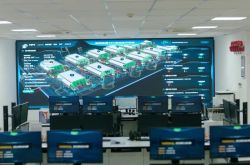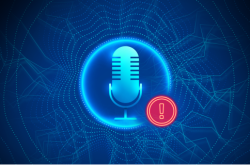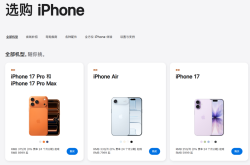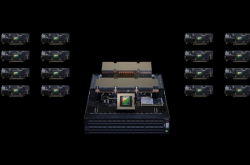AI PC drives the global PC market to recover, with shipments increasing year-on-year and quarter-on-quarter in Q3
![]() 10/16 2024
10/16 2024
![]() 410
410

This article is comprehensively written by Semiconductor Industry Review (ID: ICVIEWS)
The global PC market continued its growth trend in the third quarter of 2024, extending from the first quarter of the year.
According to the latest report from research firm Counterpoint Research, driven by the gradual increase in AI PC sales, global PC shipments reached 65.3 million units in Q3 2024, up 1% year-on-year and 5% quarter-on-quarter.
Counterpoint Research noted that the global PC market continued its growth trend in Q3 2024, extending from Q1. Despite the early pull-in of shipments in Q2, shipments in Q3 still grew by about 5% compared to Q2, primarily benefiting from the replacement demand driven by the upcoming end of support for Windows 10 and the gradual increase in AI PC sales.
In terms of brand performance, Lenovo achieved annual shipment growth for the fourth consecutive quarter, with its market share returning to 25%. HP and Dell performed robustly in Q3, mainly due to the growth in demand in the North American market and the support of corporate orders. Apple had a mediocre performance in Q3, but the market anticipates the launch of its new products equipped with M4 chips, among which the M4 MacBook Pro with a 10-core CPU is expected to be the focus in Q4.
Since 2021, Q3 has no longer been a significant peak season for the PC industry. Even with back-to-school demand, Counterpoint Research Senior Analyst William Li pointed out that after AMD and Intel launched their new CPU platforms in Q3, demand for AI PCs in the notebook market gradually increased, but the market is still waiting for key application scenarios that can bring higher added value to daily work.
Looking ahead to Q4, as the demand for Windows 10 replacements gradually wanes, AI PCs are expected to become a new growth driver. Counterpoint Research predicts that the holiday season will continue the positive trend, and annual PC shipments in 2024 are expected to achieve 2% year-over-year growth.
Recently, leading manufacturers such as Lenovo and ASUS have launched new AI PC products, aiming to capture this growing market. ASUS's new product, the "Vivobook 14 Air," was launched on September 17, emphasizing its positioning as an "AI ultra-thin laptop." On the other hand, Lenovo also announced a range of AI PC devices, including ThinkPad and IdeaPad series, marking its further expansion in the field of intelligent personal computers.
The deep integration of AI technology has not only enhanced the performance of AI PCs but also broken the limitations of traditional PCs. The new generation of devices is automatically optimized through intelligent algorithms, significantly improving the user experience. For example, AI PCs can provide personalized recommendations based on users' usage habits and efficiently manage system resources, thereby enhancing work and study efficiency. This transformation reflects consumers' desire and expectation for more intelligent devices.
It is worth noting that this trend is underpinned by significant market potential. As early as Q2 2024, AI PC shipments had already reached 8.8 million units, accounting for 14% of global PC shipments. This indicates that the AI PC market is rapidly emerging as a new growth engine for the PC industry. Moreover, industry analysts believe that with the increasing popularity of smart devices and the rising demand for device replacements, the AI PC market is poised for significant growth in the coming years.
From a macroeconomic perspective, the trade-in policies recently announced by various government departments will further stimulate consumer enthusiasm for device replacements. The subsidy policies for trade-ins of eight types of home appliances, including computers, will undoubtedly accelerate the popularization of AI PCs. This policy support not only provides economic incentives for consumers but also spurs technology companies to accelerate R&D investments, becoming an essential driving force for upstream and downstream enterprises in the industry chain.
At the technological innovation level, chip manufacturers are also leveraging this trend. For instance, multiple companies based on the ARM architecture, such as Qualcomm and Intel, are committed to launching processors that support AI PCs. These high-performance chips continuously enhance computational performance and energy efficiency, enabling AI PCs to handle complex tasks with ease. Additionally, AI PCs offer exceptional portability and long battery life, making them popular among young users and professionals.
Beyond hardware advancements, AI's intelligent applications in software are also breaking past usage boundaries. In areas such as AI writing and painting, related AI tools are gradually entering people's daily lives. These tools not only provide users with efficient creative experiences but also enhance creation quality through intelligent recommendations. For example, Jian Dan AI is a versatile creation assistant that covers various functions such as AI painting, text-to-image, and image-to-image generation, making creation simpler and more convenient.
However, the rapid growth of AI PCs has also raised social concerns and issues for contemplation. For instance, as devices undergo upgrades, the disposal of old devices becomes a non-negligible topic. Moreover, the misuse of technology can lead to information security and privacy protection issues. Therefore, while enjoying the convenience brought by intelligent technology, consumers and enterprises should maintain rationality and prioritize data security and privacy protection.
In conclusion, 2024 is poised to be a pivotal year for the development of AI PCs. The emergence of this emerging market can not only stimulate consumer vitality but also drive the overall upgrade of related industrial chains. For ordinary consumers, mastering and utilizing intelligent devices can bring brand-new life and work experiences. In today's rapidly evolving technological era, learning how to leverage AI has become a crucial path to enhancing personal competitiveness.
*Disclaimer: This article is written by the original author. The content represents their personal views. Our reproduction is solely for sharing and discussion and does not indicate our endorsement or agreement. If you have any objections, please contact us.








